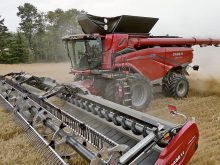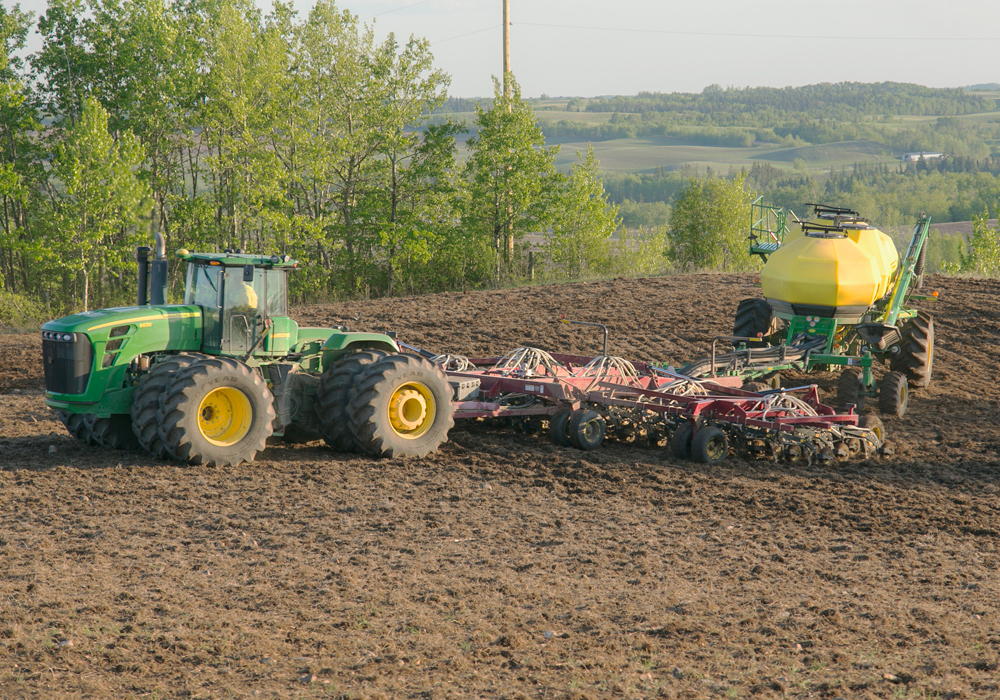Canada’s second largest grain company is having a busy 2010.
It is refurbishing existing assets, acquiring new ones and getting ready to open one of the largest canola crushing plants on the Prairies.
Richardson International has entered the home stretch of its crushing facility project in Yorkton, Sask.
The company is going through the 840,000 tonne plant section by section as it conducts dry test runs and wet runs on all equipment to ensure it is functioning properly.
“You can’t just turn the switch on and it starts working,” said company spokesperson Jean-Marc Ruest.
Read Also

Farmers urged to be grain-safe this fall
Working around grain bins comes with risk, from farmers falling to drowning in grain: Experts have five tips to help avoid grain-related accidents this harvest.
If all goes well in the commissioning phase, the plant should be operational by the time farmers in the area are done seeding.
“We should be crushing oil by the end of May or early June,” he said.
The canola plant is one of many projects on the go at Richardson.
The company recently announced the acquisition of Eco Seeds, an agricultural input supplier in Peace River, Alta.
The deal gives the grain company two new crop service centres: one in Fairview, Alta., and the other in Rycroft, Alta. Richardson will build a 1,200 tonne fertilizer storage facility at the Fairview location.
Earlier this year, Richardson acquired Total Ag Ltd.’s crop input facility at Falher, Alta., in the Peace River region.
The company previously owned Dunvegan Ag Business Centre in Rycroft and a crop service centre in Spirit River, Alta.
“Peace River is one of Western Canada’s highest producing agricultural regions and we are pleased to continue to invest in our network to better serve area producers,” said Darwin Sobkow, Richardson’s vice-president of agribusiness operations.
The grain company also plans to refurbish existing assets in 2010.
Ruest said the company has more spending plans to reveal in addition to the $20 million announced to expand four agricultural business centres in Saskatchewan and Alberta:
* Olds, Alta: Increasing storage capacity by 13,000 tonnes, adding a high-capacity grain dryer, enhancing on-site office space and expanding rail car capacity to accommodate 112-car unit trains;
- Hamlin, Sask. (North Battleford): Increasing storage capacity by 14,000 tonnes;
- Canora, Sask: Building a 1,200 tonne fertilizer storage facility;
- Yorkton, Sask: Building a multi-fertilizer distribution facility with 30,000 tonnes of storage capacity, including the ability to receive fertilizer unit trains.
“By investing in the front end of our Richardson Pioneer Ag Business Centres, we are not only improving the capacity and efficiency we can provide to our customers today, we are anticipating their future needs as we work together to meet the growing global demand for quality Canadian crops,” Sobkow said.
Ruest said Richardson’s expansion and refurbishment program began in earnest in 2007 when the company agreed to abandon its pursuit of Agricore United in exchange for the right to buy 15 elevators and nine supply centres from Saskatchewan Wheat Pool, in addition to receiving a $35 million termination fee. The deal increased Richardson’s handling capacity by 50 percent.
The following year, the company announced a $40 million capital expenditure project to expand 16 facilities in Alberta, Saskatchewan, Manitoba and Ontario.
In 2009, Richardson announced it was spending $12 million to double its grain storage and rail car capacity in Brandon and Swift Current, Sask., upgrade rail car capacity in Crooked River, Sask., and expand its fertilizer storage in Whitewood, Sask.
“We still have other projects yet to announce,” Ruest said.















